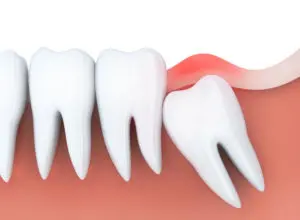When Should You Have Your Wisdom Teeth Removed?


Why Do Some People Have Wisdom Teeth Removed?
Dentists often recommend wisdom tooth removal for any number of reasons. These teeth are notorious for causing problems, mostly because a lot of patients simply don’t have room for wisdom teeth. It’s also hard to reach the back of your mouth, so wisdom teeth often
Wisdom teeth may lead to abscessed teeth, misalignment of your other teeth, and cysts or tumors. Most commonly, people have their wisdom teeth removed because they’re painful or uncomfortable. Because wisdom teeth are harder to extract later, many patients choose to remove them early, even if they’re not showing any symptoms.
Signs of Wisdom Tooth Impaction
Your wisdom teeth may not cause any problems as they erupt. More commonly, though, patients experience moderate pain or discomfort during the process. If the wisdom teeth become impacted, you may notice:
- Severe pain, particularly in the jaw
- Headache
- Swelling
- Red gums
- Bad breath
- Problems opening your mouth or chewing
- A bad taste in your mouth
If you’re experiencing any of these symptoms, it’s best to see an oral surgeon who can remove the wisdom teeth and prevent further complications.
What Is the Best Age for a Wisdom Tooth Extraction?
Wisdom teeth normally erupt during the late teens or early 20s. It’s much easier to remove wisdom teeth on younger patients, so this is the optimal time for surgery. If you wait longer, the roots grow and make it more difficult to remove the teeth without complications. Oral surgeons can remove impacted wisdom teeth, too. The surgery itself doesn’t take long, and recovery is usually just a few days. Many patients schedule a wisdom tooth extraction on a Friday and use the weekend to rest before returning to work or school.
Schedule Wisdom Teeth Surgery in Stillwater
If you want to schedule wisdom teeth surgery, you’ll need an oral surgeon in Stillwater, OK. Whether you’re seeking preventive care or your wisdom teeth are causing problems, you can schedule an appointment today.
Content found on this blog is intended for educational purposes only and should not be used as a substitute for professional judgement, advice, diagnosis, or treatment. Please speak with a professional if you have concerns about your oral health.